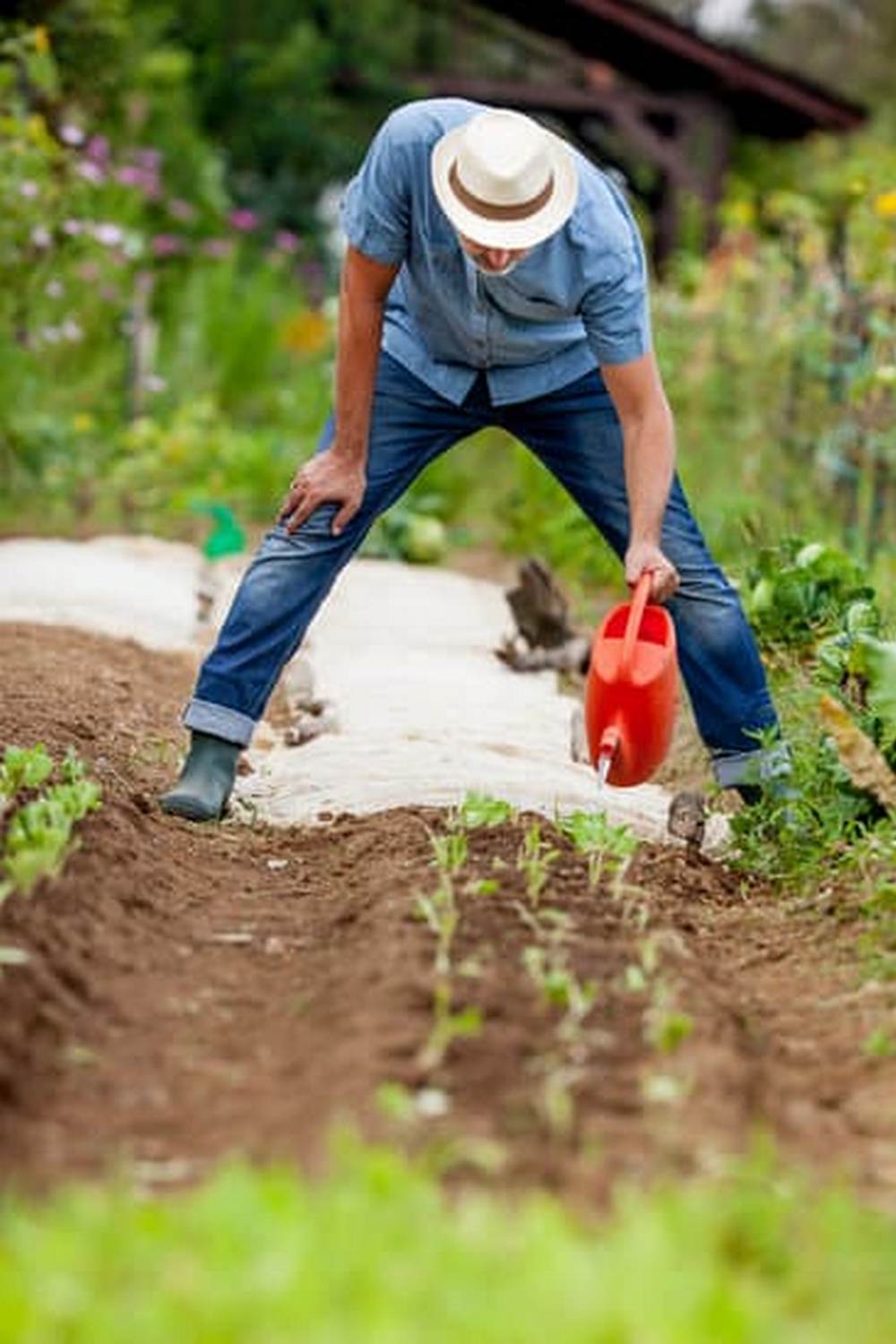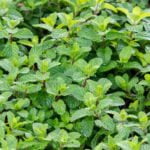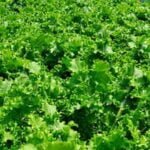Pine bark mulch is a popular choice for many gardeners when it comes to keeping their vegetable gardens healthy and thriving. The question of whether pine bark mulch is good for vegetable gardens is one that often arises among gardening enthusiasts looking to maximize the health of their plants. In this article, we will delve into the various benefits of using pine bark mulch in vegetable gardens and explore how it can be a valuable addition to your gardening routine.
Mulch plays a crucial role in vegetable gardens by helping retain moisture, control weeds, regulate soil temperature, and improve overall soil health. Pine bark mulch, in particular, has unique properties that make it an excellent choice for enhancing the growth of vegetables. Not only does it provide aesthetic appeal to garden beds, but it also offers numerous advantages that contribute to the overall well-being of plants.
One key benefit of using pine bark mulch in vegetable gardens is its ability to retain moisture in the soil. By creating a protective layer over the ground, pine bark mulch helps reduce water evaporation and maintain adequate moisture levels for plant roots. This is especially important during hot summer months or in regions with inconsistent rainfall patterns. Additionally, pine bark mulch aids in preventing soil erosion and compaction, which are common issues that can hinder plant growth.
Benefits of Using Pine Bark Mulch in Vegetable Gardens
Using pine bark mulch in vegetable gardens provides numerous benefits that can help improve the overall health and productivity of your plants. Here are some key advantages of incorporating pine bark mulch into your garden:
- Moisture Retention: One of the primary benefits of using pine bark mulch is its ability to retain moisture in the soil. By creating a protective barrier on the surface, pine bark mulch helps prevent water evaporation, ensuring that your vegetables have access to an adequate water supply even during dry periods.
- Nutrient Retention: In addition to retaining moisture, pine bark mulch also aids in nutrient retention in the soil. As it decomposes over time, pine bark mulch releases essential minerals and organic matter back into the soil, providing a steady supply of nutrients for your vegetable plants.
- Weed Suppression and Pest Control: Pine bark mulch can play a crucial role in suppressing weeds by blocking sunlight from reaching weed seeds and inhibiting their germination. Additionally, the natural oils found in pine bark can act as a deterrent for certain pests, helping to protect your vegetables from potential damage.
Overall, using pine bark mulch in your vegetable garden not only promotes healthier plant growth but also reduces the need for excessive watering, fertilizing, and weeding. Its natural properties make it an environmentally friendly option that can enhance the overall sustainability of your gardening practices.
How Pine Bark Mulch Helps Retain Moisture in the Soil
Pine bark mulch is an excellent choice for vegetable gardens when it comes to retaining moisture in the soil. Here are some of the ways in which pine bark mulch can benefit your vegetable garden in terms of moisture retention:
- Pine bark mulch acts as a barrier on the soil surface, reducing evaporation and helping to lock in moisture. This is particularly important during hot summer months when water loss from the soil can be significant.
- The fibrous nature of pine bark mulch allows it to absorb water and release it slowly into the soil, providing a consistent source of moisture for vegetable plants.
- By maintaining more consistent soil moisture levels, pine bark mulch can help prevent stress on vegetable plants caused by fluctuations in watering regimes. This can lead to healthier plants and improved yields.
In addition to these benefits, using pine bark mulch in your vegetable garden can also help improve overall soil structure. The organic matter in the mulch breaks down over time, adding valuable nutrients to the soil and enhancing its ability to retain water. This not only benefits your current crop but also sets the stage for future plantings.
Overall, incorporating pine bark mulch into your vegetable garden can have a positive impact on moisture retention, allowing you to conserve water while promoting healthier plant growth. Consideration should also be given to the type of vegetables being grown as certain varieties may have specific requirements for moisture levels. As with any gardening practice, it’s important to monitor soil moisture regularly and adjust your mulching practices as needed for optimal results.
Nutrient Retention and Soil Improvement With Pine Bark Mulch
Improving Soil Nutrient Content
Pine bark mulch is not only beneficial for retaining moisture in vegetable gardens but also plays a crucial role in enhancing the soil’s nutrient content. As pine bark mulch decomposes, it releases essential nutrients into the soil, such as nitrogen, potassium, and phosphorus. These nutrients are vital for the healthy growth of vegetables, ensuring they receive the necessary elements to thrive and produce bountiful yields.
Enhancing Soil Structure
In addition to providing essential nutrients, pine bark mulch also helps improve soil structure in vegetable gardens. The organic matter from the decomposing mulch adds to the soil’s overall health and fertility by increasing its ability to hold water and nutrients. This creates a more conducive environment for plant roots to penetrate deep into the ground, allowing them to access crucial resources for optimal growth and development.
Reducing Soil Compaction
Another benefit of using pine bark mulch in vegetable gardens is its ability to reduce soil compaction. Compacted soil can hinder root growth and restrict water infiltration, leading to poor plant health and reduced productivity.
By applying a layer of pine bark mulch over the soil, gardeners can prevent compaction caused by heavy rain or foot traffic, improving overall soil quality and promoting better nutrient uptake by vegetables. Ultimately, choosing pine bark mulch for your vegetable garden can result in healthier plants with improved access to essential nutrients for robust growth and abundant harvests.
Weed Suppression and Pest Control With Pine Bark Mulch
Maintaining a vegetable garden can be a rewarding experience, but it also comes with its share of challenges, such as weeds and pests that can hinder the growth of your crops. This is where pine bark mulch comes in as a valuable ally in combating these issues. The use of pine bark mulch not only helps in retaining moisture and improving soil quality, but it also plays a crucial role in suppressing weed growth and controlling pests naturally.
One of the primary reasons why pine bark mulch is effective in weed suppression is its ability to create a barrier that prevents weed seeds from germinating and growing. By applying a layer of pine bark mulch around your vegetable plants, you can significantly reduce the amount of weeding needed throughout the growing season. This not only saves you time and effort but also minimizes soil disturbance, which can disrupt the delicate root systems of your vegetables.
In addition to weed suppression, pine bark mulch can also act as a natural pest control method in your vegetable garden. Certain insects and pests are deterred by the texture and scent of pine bark mulch, making it an environmentally friendly way to protect your crops without the use of harmful chemicals. By incorporating pine bark mulch into your garden beds, you create a more balanced ecosystem that promotes beneficial insects while deterring unwanted pests.
| Aspect | Detail |
|---|---|
| Weed Suppression | Pine bark mulch creates a barrier that prevents weed seeds from germinating. |
| Pest Control | The texture and scent of pine bark mulch deter certain insects and pests. |
| Beneficial Ecosystem | Pine bark mulch promotes beneficial insects while deterring unwanted pests naturally. |
The Role of Pine Bark Mulch in Temperature Regulation for Vegetables
Pine bark mulch plays a crucial role in temperature regulation for vegetables in a garden setting. One of the main benefits of using pine bark mulch is its ability to regulate soil temperatures, especially during extreme weather conditions.
During hot summer days, pine bark mulch acts as a protective layer that helps keep the soil cool and prevents overheating of the plant roots. On the other hand, in colder seasons, the mulch insulates the soil, maintaining warmth and protecting the roots from frost damage.
In addition to temperature regulation, pine bark mulch also helps create a stable environment for beneficial soil microorganisms that are essential for healthy plant growth. These microorganisms thrive in moderate temperatures provided by the mulch layer and contribute to improved nutrient uptake by vegetable plants. By creating an optimal environment underground, pine bark mulch supports overall plant health and encourages strong root development.
Furthermore, when it comes to temperature-sensitive vegetable crops such as tomatoes, peppers, and eggplants, pine bark mulch provides a consistent environment that promotes steady growth and productivity. By reducing temperature fluctuations in the soil, these vegetables can focus their energy on flowering and fruiting rather than on struggling to adapt to sudden changes in climate. Overall, incorporating pine bark mulch into your vegetable garden not only assists with temperature regulation but also enhances plant resilience and crop yield.
| Benefit | Explanation |
|---|---|
| Temperature Regulation | Pine bark mulch regulates soil temperatures for vegetables based on weather conditions. |
| Microorganism Support | The stable environment created by the mulch supports beneficial soil microorganisms for plant health. |
| Crop Productivity | Pine bark mulch helps maintain optimal conditions for temperature-sensitive vegetable crops resulting in improved growth and yield. |
Application Tips for Using Pine Bark Mulch in Vegetable Gardens
When it comes to using pine bark mulch in vegetable gardens, there are some key tips to keep in mind to maximize its benefits. Proper application of pine bark mulch can help ensure that your vegetables thrive and yield a bountiful harvest.
Depth and Coverage
It is essential to apply pine bark mulch at the right depth and coverage. A layer of 2-3 inches of mulch is generally recommended for vegetable gardens. Make sure to spread the mulch evenly around the plants, leaving a small gap around the base of each plant to prevent moisture-related issues.
Avoiding Mulch Contact With Plant Stems
To prevent rot and disease, be sure to keep the pine bark mulch from directly contacting the stems of your vegetable plants. Create a small buffer zone between the mulch and the base of each plant to allow for proper airflow and prevent excess moisture buildup.
Replenishing Mulch as Needed
Over time, pine bark mulch will break down and decompose, so it’s important to replenish the mulch layer periodically. Check the mulch regularly and add more as needed to maintain the desired thickness. This will help continue providing all the benefits that pine bark mulch offers for your vegetable garden throughout the growing season.
By following these application tips for using pine bark mulch in your vegetable garden, you can ensure that your plants receive all the advantages this type of mulch provides while creating an environment conducive to healthy growth and productivity.
Comparing Pine Bark Mulch to Other Types of Mulch for Vegetable Gardens
When it comes to choosing the right mulch for your vegetable garden, there are a variety of options available. One popular choice is pine bark mulch, which offers several unique benefits compared to other types of mulch. One key advantage of using pine bark mulch in vegetable gardens is its natural ability to break down gradually over time, providing long-lasting benefits to the soil.
In comparison to synthetic or dyed mulches, pine bark mulch is a natural and organic option that can improve the overall health of the soil. As the pine bark decomposes, it adds valuable nutrients back into the soil, promoting healthy growth for vegetables. Additionally, pine bark mulch has a distinct texture that helps with water retention in the soil, reducing the need for frequent watering and creating a more stable growing environment for plants.
Another factor to consider when comparing pine bark mulch to other types of mulch is its effectiveness in weed suppression and pest control. The natural properties of pine bark can help deter weeds from sprouting in your garden beds, reducing the need for manual weeding efforts.
Additionally, some gardeners believe that the scent of pine bark can act as a deterrent for certain pests, helping to protect your vegetable plants from potential damage. Overall, the unique characteristics of pine bark mulch make it a beneficial choice for vegetable gardens looking to maintain healthy soil and promote optimal plant growth.
Conclusion
In conclusion, it is evident that pine bark mulch can be highly beneficial for vegetable gardens. The use of pine bark mulch not only helps in retaining moisture in the soil but also aids in nutrient retention and overall soil improvement. Additionally, this type of mulch serves as an effective method for weed suppression and pest control, ultimately leading to healthier vegetable plants.
One important aspect to note is the role of pine bark mulch in temperature regulation for vegetables. By acting as a protective barrier against extreme temperatures, pine bark mulch ensures a more stable environment for plant growth. This factor is crucial for the successful cultivation of vegetables in varying weather conditions.
Furthermore, when comparing pine bark mulch to other types of mulch, it is clear that its unique properties make it a favorable choice for vegetable gardens. Its ability to break down slowly over time provides long-lasting benefits for the soil and plant health.
Overall, considering the numerous benefits and effectiveness of using pine bark mulch, it is safe to say that incorporating this type of mulch into your vegetable garden routine can greatly enhance the overall success of your harvests.
Frequently Asked Questions
Is Pine Bark Mulch Good for Tomatoes?
Pine bark mulch can be beneficial for tomatoes as it helps retain moisture in the soil, regulates temperature, and suppresses weed growth. However, it’s important to monitor acidity levels as pine bark mulch can slightly lower pH.
What Is the Best Mulch for Vegetable Garden?
The best mulch for a vegetable garden largely depends on your specific needs and preferences. Organic options like straw, grass clippings, or compost are popular choices as they enrich the soil over time and provide nutrients to plants. Mulches that decompose slowly are ideal.
What Are the Downsides of Pine Bark Mulch?
Despite its benefits, pine bark mulch has some downsides to consider. It can be more expensive compared to other mulches, especially if you have a large garden area to cover. Additionally, pine bark mulch may attract pests like termites in certain regions if not properly managed.

If you’re looking to get into vegetable gardening, or are just looking for some tips on how to make your current garden better, then you’ve come to the right place! My name is Ethel and I have been gardening for years. In this blog, I’m going to share with you some of my best tips on how to create a successful vegetable garden.





